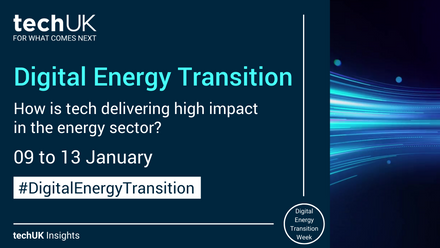Energy Retail Market Reform – Vision for the Future
The energy retail market experienced unprecedented upheaval in mid-2021, resulting in soaring wholesale energy prices and significant volatility. In response to the challenges posed by the energy crisis, the government took action to protect consumers, ensure energy supply continuity, and stabilise the market. Now, the focus has shifted towards targeted reforms aimed at creating a more consumer friendly, resilient, and investable retail market that aligns with the transformation to a net zero energy system.
Key Themes for a Better Retail Market: The government's vision for the energy retail market, outlined in "Powering Up Britain," revolves around three central themes:
- Better for Consumers: The priority is to maintain fair and sustainable energy pricing that is reflective of costs. The goal is to work towards making energy affordable for all consumers while upholding and improving consumer standards.
- More Resilient and Investable: To enhance resilience against future wholesale price fluctuations and shield consumers from supplier failures, the government aims to foster a competitive and profitable environment for well-run suppliers that offer value to consumers.
- Supports Wider Energy System Transformation: By addressing regulatory barriers and encouraging innovation, the retail market can play a pivotal role in supporting broader changes in the energy system, such as the smart meter rollout and Market-wide Half-Hourly Settlement.
Government's Actions and Support
The government, in collaboration with Ofgem, has already undertaken efforts in line with these principles. During the global energy crisis, unprecedented support was extended to consumers, including financial assistance amounting to significant bill reductions. The latest data indicates a drop in average household energy bills, though the government acknowledges the need for cheaper, cleaner, and more secure energy.
Continued Support and Targeted Reforms
The government remains committed to closely monitoring energy prices and their impact on consumers. Additional support schemes have been introduced for households and businesses to mitigate the effects of volatile energy markets. As prices begin to stabilise, the focus shifts to future oriented reforms that aim to unlock competition, investment, and innovation in the retail market.
The targeted reforms are designed to achieve four main objectives:
- Empowering Consumers: The reforms seek to enhance consumer choice and enable suppliers to succeed by leveraging new technologies and business models.
- Transition to Net Zero: The government aims to incentivise a switch to low carbon technology, reduce system costs, and protect vulnerable consumers during the transition to a greener energy landscape.
- Tackling Fuel Poverty: Targeted support will be provided to those in need, addressing fuel poverty in a more focused manner as energy prices decrease.
- Strengthening Consumer Protection: The framework for consumer protection will be enhanced to accommodate the dynamic and evolving nature of the future retail market, focusing on customer service and other aspects beyond price protections.
Need for Change
The current domestic retail energy market is dominated by a few suppliers competing mainly on price. Unsustainable business models led to supplier failures when global energy prices surged in 2021. Consumers have limited choices and low engagement with energy tariffs. The non-domestic market is less concentrated but also faces challenges from price shocks. To support the shift towards net zero emissions, both markets need transformation, offering tailored products and encouraging consumer participation. Such changes could lead to benefits for consumers and retailers, fostering innovation and low-carbon energy approaches.
Balance Between Competition and Regulation
The primary goal for the energy retail market is sustainable competition that benefits most consumers. Regulatory barriers to competition that are not in consumers' interest will be removed, but energy being an essential service requires some level of regulation and minimum standards enforcement. With global energy markets stabilising, there is an expectation of increased competition between suppliers. While the default tariff cap has been valuable in limiting household energy bills, its short-term focus could hinder innovation and consumer engagement. Greater access to a variety of tailored products and services will encourage consumers to engage with the market. Some consumers may require additional protections, particularly low-income and vulnerable individuals, but the goal is to strike a balance between protection and enabling the benefits of innovation. A review is underway to explore options for consumer protection from April 2024, aligning with fuel poverty strategies and affordability. The government is also examining gas network costs and ensuring protections adapt to the evolving retail market through a Call for Evidence on a more innovative energy retail market.
The Role of Energy Suppliers in the Future Retail Market
The energy suppliers will continue to play a crucial role in the energy system, and a complete regulatory overhaul is not currently under consideration. However, targeted reforms are necessary to achieve the vision for the retail market, supporting consumers through the global energy crisis and enhancing market resilience. The current role of licensed suppliers encompasses various functions, industry transformation programs, and support schemes. Instead of radical changes, the focus will be on enabling a market where energy companies delivering valuable products and services can thrive.
A Call for Evidence has been launched to explore the extent of government intervention needed for a net zero energy system. Financial resilience measures will be in place to ensure suppliers can make long-term investments in innovative technologies. System wide reforms, including smart meter rollout, energy smart appliances, renewable generation, and flexibility, will complement targeted retail market reforms, empowering consumers with a range of tailored products and services aligned with net zero objectives.
Included in this package are:
- A vision document: “Delivering a better energy retail market”.
- Call for Evidence on how to increase innovation in the retail market.
- Call for Evidence on domestic consumers receiving their energy via a non-domestic energy supply contract.
- Summary of responses call for evidence on the transparency of carbon content in energy products.
- Summary of responses call for evidence on how third-party intermediaries (TPIs) operate across both the domestic and non-domestic retail energy.
- Summary of responses call for evidence on electricity licence exemptions.

Teodora Kaneva
Teodora’s rich background varies from working in business development for a renewable energy lobbying association in Brussels to the fast moving technology innovation startup scene in the UK.






